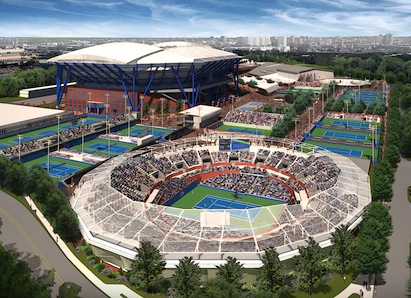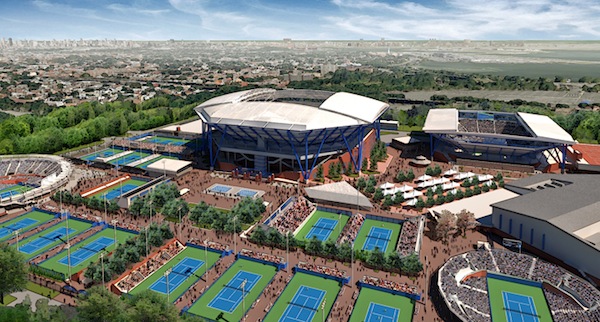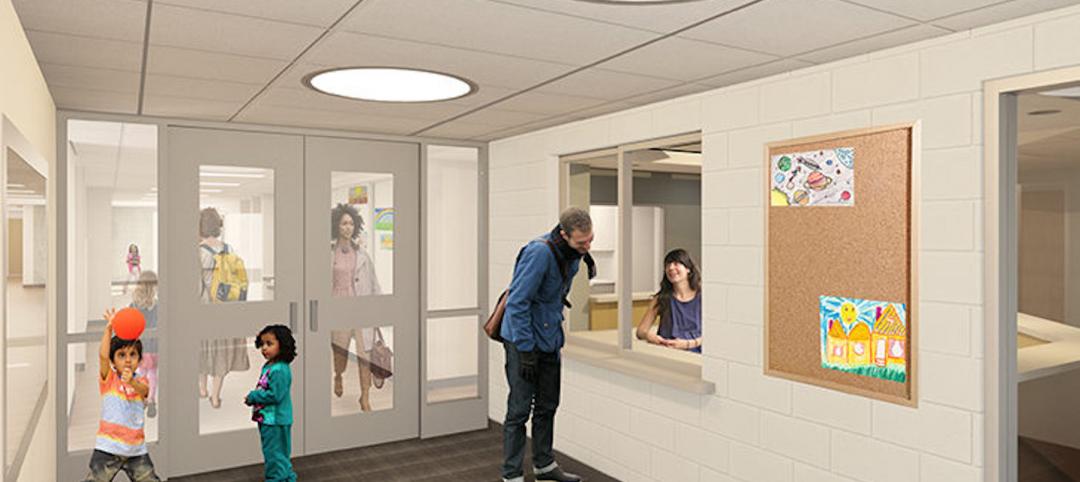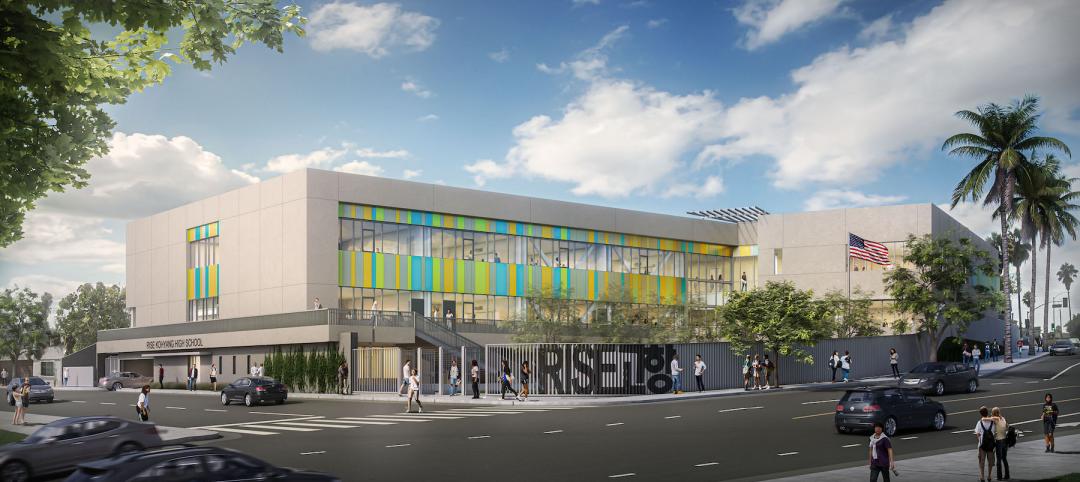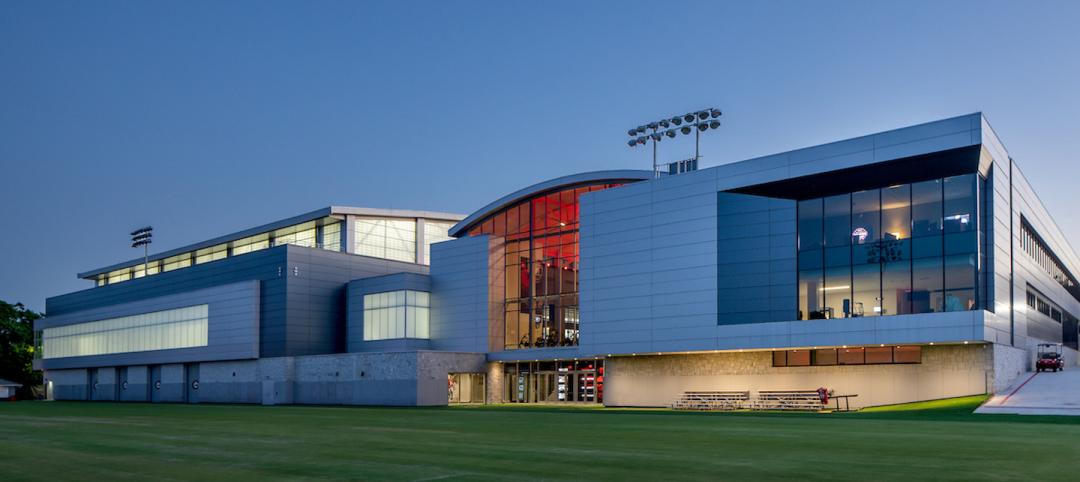FLUSHING, N.Y. – The United States Tennis Association has announced its plans for a sweeping transformation of the USTA Billie Jean King National Tennis Center that will include the construction of two new stadiums, as well as a retractable roof over Arthur Ashe Stadium. The transformation will be implemented in three phases to begin at the conclusion of the 2013 US Open, with the goal of overall completion by the 2018 US Open. The completion of the retractable roof for Arthur Ashe Stadium is scheduled for August 2017.
The cost for this historic transformation is estimated at $550 million, including the cost of the retractable roof, estimated to cost in excess of $100 million. As it has done with improvements to the National Tennis Center in the past, the USTAwill self-finance the entire cost of this transformation through a combination of bonds and USTA revenue generation. Since 1994, the USTA has invested more than $500 million in improvements to the site.
“We have been working toward a viable design for a roof on Arthur Ashe Stadium for more than a decade,” said USTAChairman of the Board and President Dave Haggerty. “Through a long and arduous process, we feel that we now have a design that meets the criteria of being architecturally sound, aesthetically pleasing, reasonably affordable, and buildable.”
In addition to the roof on Arthur Ashe Stadium, phase one of construction is scheduled to include the shifting of the existing practice courts and two tournament courts to the north. This will allow the construction of an expanded viewing area for the practice courts and the three new tournament courts. This enhanced fan experience will require the re-building of the current transportation facilities located adjacent to Arthur Ashe Stadium.
The retractable roof is being designed by ROSSETTI, the designer and architect of Arthur Ashe Stadium. The USTA has hired Hunt Construction Group to build the retractable roof structure. Hunt has a long and impressive track record of sports facility construction in New York City, including construction of the Barclays Center and Citifield. As designed, the retractable roof constructed of flexible, translucent PTFE fabric stretched over a steel frame, will be supported by eight steel columns surrounding Arthur Ashe Stadium.
Phase two of the transformation will be anchored by the construction of a new 8,000-seat Grandstand Stadium in the southwest quadrant of the Tennis Center. Simultaneously, field courts 7 through 16 will be moved south so that a larger pedestrian and fan esplanade can be created, better connecting the new Grandstand with Court 17. This southern expansion also allows the USTA to further enhance the fan experience, with a new additional food court, new merchandise locations and sponsor exhibit booths, and other fan amenities across the southern expanse of the Tennis Center.
The project’s final phase will include the construction of a new 15,000-seat Louis Armstrong Stadium. The USTAexpects final design work for Armstrong to be completed in the next 12 to 18 months. The targeted completion date of the stadium, which will be built “roof-ready,” is August 2018. Also during the third phase, the USTA will complete a series of upgrades to the East Entrance, the most trafficked entry point to the US Open.
"We have an aggressive construction agenda for the entire National Tennis Center, with a new Grandstand Court built in time for the 2015 US Open, new retractable roof over Arthur Ashe Stadium by 2017, and a new Louis Armstrong Stadium opening for the 2018 US Open,” said Gordon Smith, USTA Executive Director and Chief Operating Officer. “We recognize there are many known, and certainly many unknown, hurdles we will have to confront to meet this schedule. We are ready for the challenge and hope we can achieve it.”
As a direct result of these collective enhancements to the NTC, the facility will be able to accommodate an extra 10,000 people each day during the US Open, increasing attendance by approximately 1200,000 new visitors, and amounting to a significant economic boost to Queens, New York City and the entire metropolitan region.
The USTA is the national governing body for the sport of tennis in the U.S. and the leader in promoting and developing the growth of tennis at every level -- from local communities to the highest level of the professional game. A not-for-profit organization with more than 785,000 members, it invests 100% of its proceeds in growing the game. It owns and operates the US Open, the highest attended annual sporting event in the world, and launched the Emirates Airline US Open Series linking 10 summer tournaments to the US Open. In addition, it owns approximately 90 Pro Circuit events throughout the U.S, and selects the teams for the Davis Cup, Fed Cup, Olympic and Paralympic Games. The USTA philanthropic entity, USTA Serves, provides grants and scholarships and helps underserved youth and people with disabilities. For more information on the USTA, log on to usta.com, “like” the official Facebook page facebook.com/usta or follow @usta on Twitter.
Related Stories
Healthcare Facilities | Jun 20, 2022
Is telehealth finally mainstream?
After more than a century of development, telehealth has become a standard alternative for many types of care.
Building Team | Jun 20, 2022
Andres Caballero Appointed President of Uponor North America
Uponor Corporation (Uponor) has named Andres Caballero president of its Building Solutions – North America division and a member of the Executive Committee at Uponor.
| Jun 20, 2022
An architectural view of school safety and security
With threats ranging from severe weather to active shooters, school leaders, designers, and security consultants face many challenges in creating safe environments that allow children to thrive.
School Construction | Jun 20, 2022
A charter high school breaks ground in L.A.’s Koreatown
A new charter school has broken ground in Los Angeles’ Koreatown neighborhood.
Building Team | Jun 17, 2022
Data analytics in design and construction: from confusion to clarity and the data-driven future
Data helps virtual design and construction (VDC) teams predict project risks and navigate change, which is especially vital in today’s fluctuating construction environment.
Sports and Recreational Facilities | Jun 17, 2022
U. of Georgia football facility expansion provides three floors for high-performance training
A major expansion of the University of Georgia’s football training facility has been completed.
Building Team | Jun 16, 2022
Hybrid work expected to reduce office demand by 9%
Businesses are slowly but consistently transitioning to a permanent hybrid work environment, according to a senior economist at Econometric Advisors.
Building Team | Jun 16, 2022
USGBC announces more than 23 million square feet of LEED certified net zero space
Today, the U.S. Green Building Council announced nearly 100 net zero certifications earned under the LEED Zero program, representing more than 23 million square feet of space.
AEC Business Innovation | Jun 15, 2022
Cognitive health takes center stage in the AEC industry
Two prominent architecture firms are looking to build on the industry’s knowledge base on design’s impact on building occupant health and performance with new research efforts.
Market Data | Jun 15, 2022
ABC’s construction backlog rises in May; contractor confidence falters
Associated Builders and Contractors reports today that its Construction Backlog Indicator increased to nine months in May from 8.8 months in April, according to an ABC member survey conducted May 17 to June 3. The reading is up one month from May 2021.


